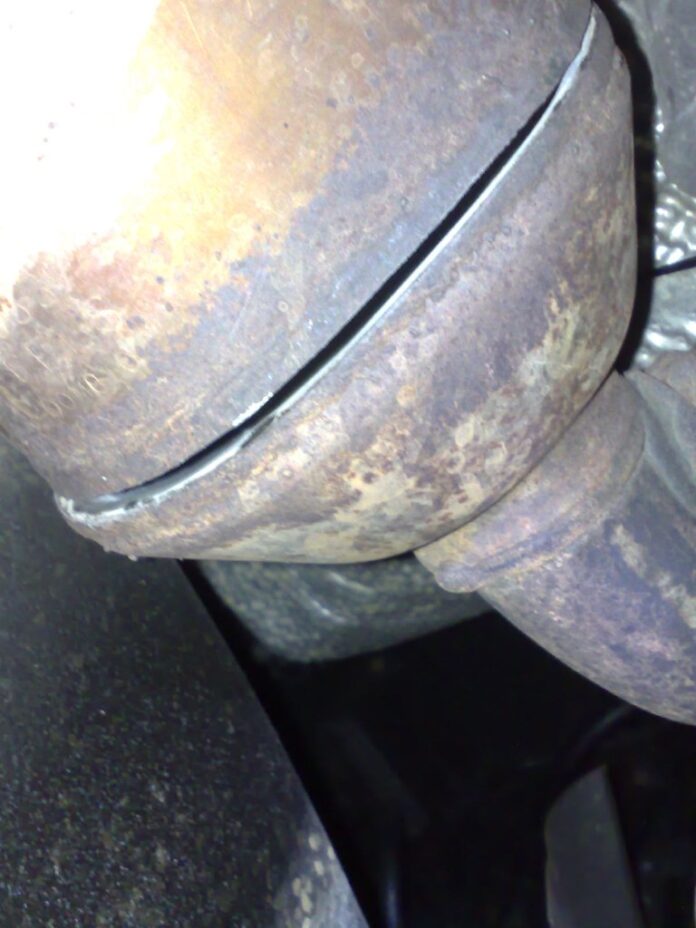Among the essential parts of the human anatomy, the liver’s function is to detoxify chemicals and metabolize drugs from the digestive tract to ensure the blood is healthy before traveling through the body. Livers are thought to last a lifetime, but some people have problems that compromise their health. Catalytic converters serve the same role for your car. Mufflers block the flow of exhaust gases from your vehicle, so these gases can’t vent through the rear of the car, either. As a result, the engine eventually dies from a lack of fuel and air mixture.
How to tell if catalytic converter is bad?
A bad catalytic converter can only be detected by checking specific symptoms. Here are some signs of a bad catalytic converter:
1. CAR doesn’t START
As with a clogged catalytic converter, a clogged liver is symptomatic of sleepiness or difficulty waking up in the mornings. This can also occur with your car when the catalytic converter is clogged, which makes it hard to start it at all or quickly.
If your catalytic converter gets clogged, your car’s engine can stall due to increased exhaust pressure. It is possible to have an issue with your catalytic converter if your car starts sputtering or stalling after it seems fine at first.
2. Check engine light on indication
Your car’s warning light will alert you to potential problems. Your car’s onboard diagnostic system will automatically test the catalytic converter if it was manufactured in 1996 or later, and chances are it was. Sensors that measure your tailpipe’s air-to-fuel ratio can activate your check engine light if you emit too much pollution.
Catalytic converters sometimes fail due to other car components’ problems, such as a spark plug. Therefore, if you suspect that there may be a problem, make sure that you replace your spark plugs.
3. Failure of a vehicle emissions test
It makes sense that a faulty catalytic converter would result in a failed vehicle emissions test since it is part of the vehicle’s emission system. A doctor conducting a blood test will find that your liver enzymes are out of whack, which indicates that your liver is failing.
It is crucial to know if your catalytic converter is working correctly since it is the main component of vehicle emissions. The test may be invalidated if you have increased carbon dioxide levels, contaminated antifreeze, contaminated motor oil, or other symptoms mentioned above.
4. You are not getting good acceleration
A clogged catalytic converter can also result in your vehicle not accelerating correctly when you step on the gas pedal.
When your car jerks when you accelerate or stall, you are probably running out of fuel. The catalytic converter may be clogged. Suppose you catch a clogged catalytic converter before it damages other car components. During this time, you might be able to treat liver failure just as you might be able to treat liver failure if it is caught early enough.
Read More: Air Conditioning Installations: How To Install Air Conditioner? All The Information You Need To know
5. Fault indicator light illuminated
You might think your car is saying, “I need to see a doctor.” It’s telling you what’s wrong with the engine so it can perform more efficiently and effectively. If you have reduced power, but the light doesn’t illuminate, the catalyst might be clogged even if it doesn’t shine. So don’t assume the catalyst can’t be clogged when it is just beginning to stop.
Catalytic Converter Repair and Replacement
Catalytic converters that have become clogged need to be replaced. It is important to remember that you cannot believe everything you read, even if catalytic converter cleaners are on the market. To fix this problem, you must replace the clogged cat. Even in states that don’t test for emissions, removing the catalytic converter and replacing it with a pipe is illegal. Be careful.
Why can your catalytic converter fail?
It is not only environmental damage to your vehicle when you have a damaged catalytic converter, but it is also costly to have neighboring parts repaired when the catalytic converter is damaged.
Catalytic converters fail for a variety of reasons, including:
- Oil and antifreeze contamination
- Defective catalyzes
- Adversely affect performance
When there are problems upstream with the engine, we can cause the exhaust to contain foreign substances, such as coolant and oil. It would help if you avoided contaminants that can damage your catalytic converter. Dents can also block the catalyst, as they can also cause the catalyst to become blocked.
Your catalytic converter can also suffer from engine performance problems. Overheating in a cat can be caused, for instance, by an engine misfire or an incorrect air/fuel mixture. This will result in premature death. It is possible to prevent new catalyst efficiency codes on your vehicle by using aftermarket catalytic converters, which are cheaper than OEM converters.
What results from a damaged catalytic converter?
A clogged catalytic converter impedes the smooth flow of air through your exhaust system. Your car’s performance will probably suffer a little due to the exhaust buildup. When you press down on the gas pedal, this might result in slow acceleration.
FAQs
- What are some ways of checking if a catalytic converter is bad?
An oxygen sensor can be removed, or the exhaust pipe connection loosened upwind of the catalytic converter can be an easy test that requires few special tools. A lousy cat has likely been causing the condition to improve when you disconnect the oxygen sensor (pipe) or run the engine with these parts disconnected.
- Is my catalytic converter in need of replacement. What should I do?
As long as the catalytic converter is functioning correctly, all of the chemicals in the exhaust system are converted into safe compounds. In contrast, if the converter does not work correctly, you’ll notice that the exhaust smells like rotten eggs or sulfur. Replace your converter right away if you see this.


















